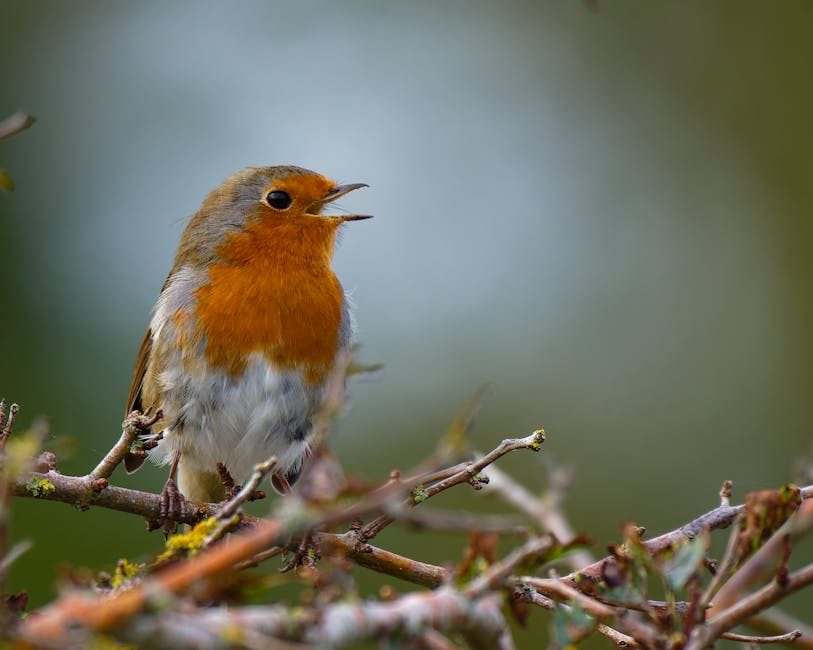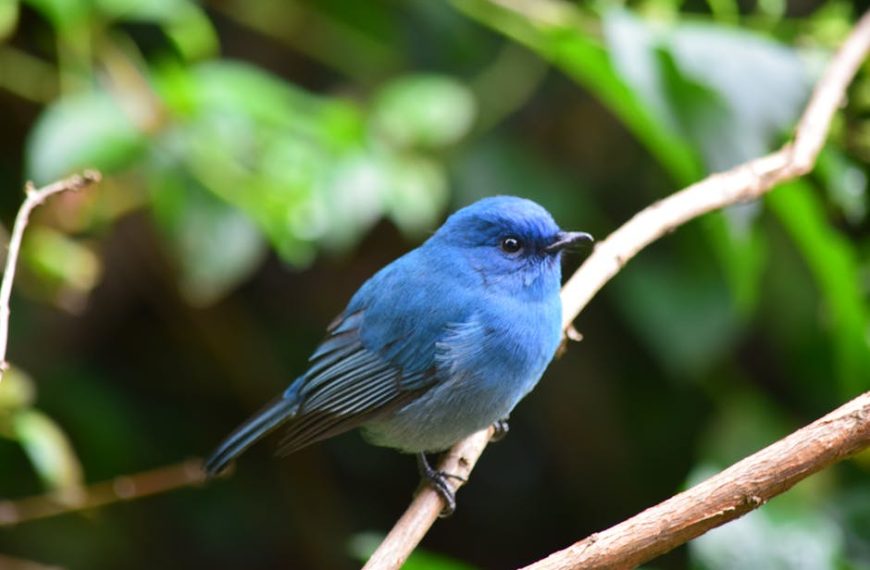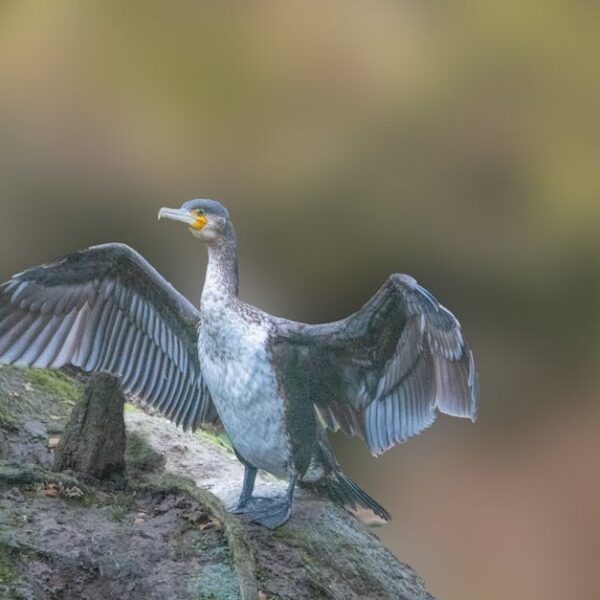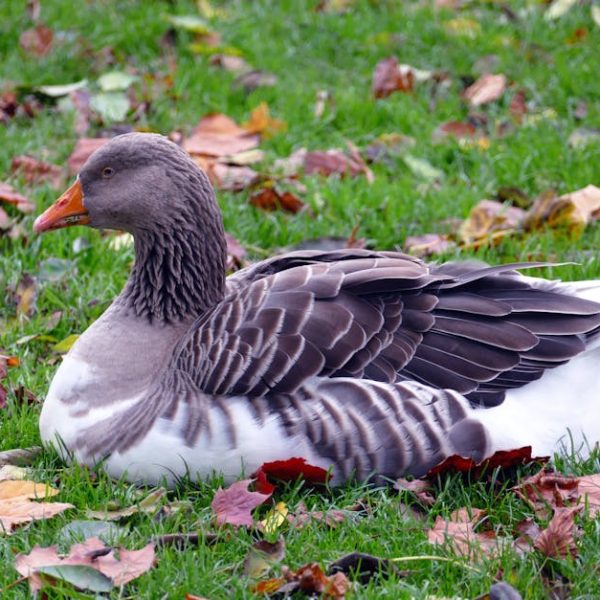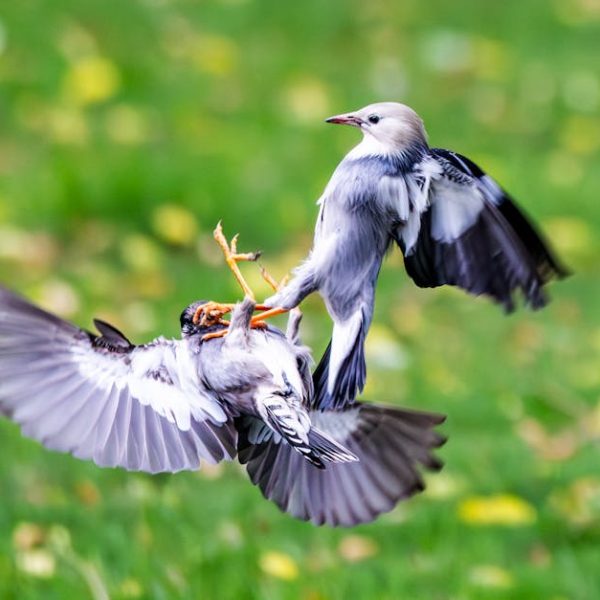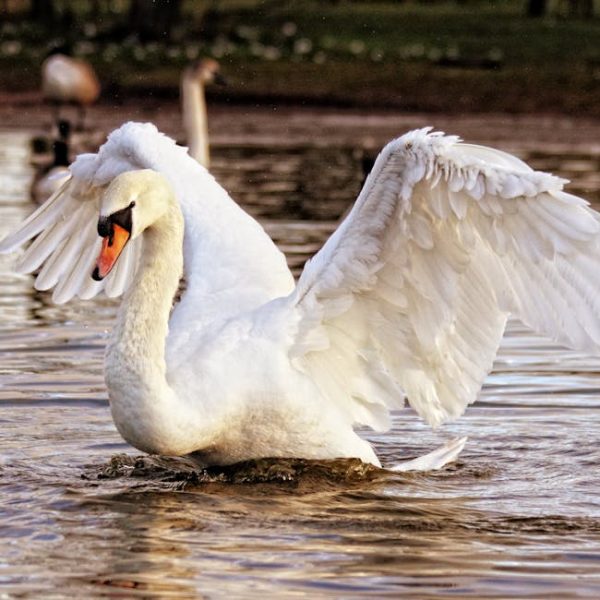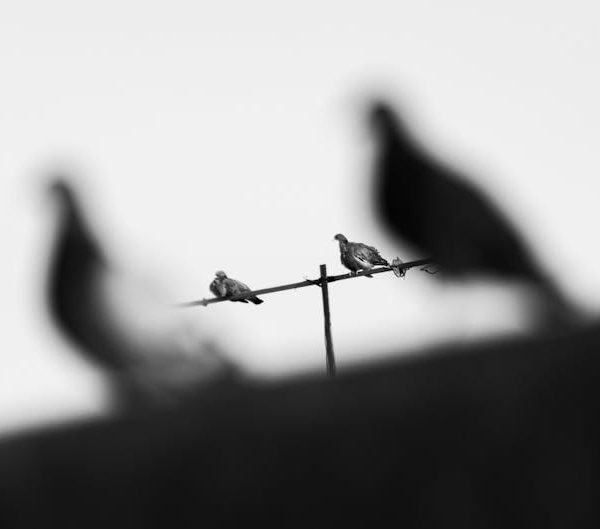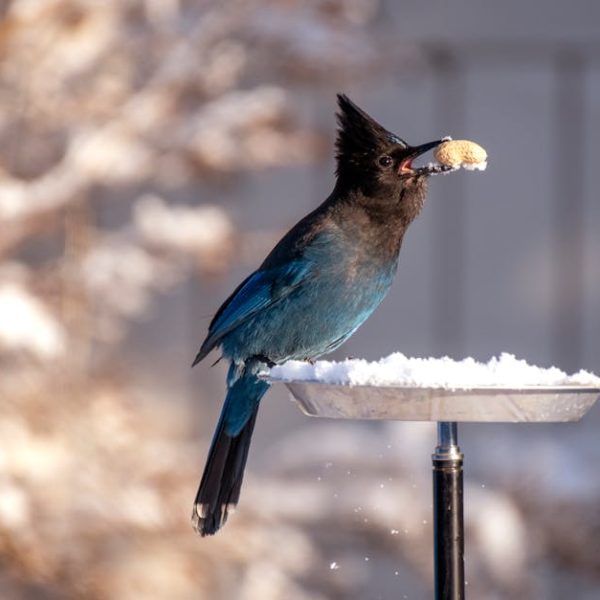Bird songs are a recognisable sound of spring, filling the morning and evening air with their sweet melodies. But why do some birds spend their night enchanting anyone whose ears can catch their nocturnal serenades? By delving into the science, communication tactics, the role of spring, and human impact, we’ll unravel the mystery behind this nighttime phenomenon.
The Science Behind Birdsong at Night
Birds sing for a variety of reasons, and knowing this can make their songs seem even more profound. Scientific evidence suggests that nocturnal singing in spring derives from the unique combination of circadian rhythm shifts, competition for mates, and territory protection.
Birds like robins, thrushes, and warblers are just a few species known for such nocturnal vocalisations. Their behavior has been largely studied, leading to a better understanding of this intriguing conduct. Simultaneously, urbanization may play a role. The hustle and bustle of city life can drown out birdsong, forcing them into the quieter nighttime to make their voices heard. Nocturnal singing appears to be adaptability in action, celebrating nature’s resilience in the face of human construction.
Role of Spring in provoking Night Singing
Spring is a pivotal time for birds. It heralds mating and breeding season, with longer daylight hours boosting their activity – and their song. Hormonal changes stimulate their drive to mate, leading to a marked increase in singing, reaching into the nighttime hours.
Imagine you could understand bird language. Wouldn’t it be fascinating to translate those enchanting tunes into coherent messages? There’s a lot to take away from those hypnotic night choruses. Note the variety in the melodies; some pieces in the symphony are indicative of a mating call or a territorial showcase.
Communication Purpose of Nocturnal Chirping
Birds are not just singing for the joy of it; these melodies are their primary means of communication. Quite often, these are mating calls, an open invitation for potential partners. Alternatively, the song might be a territorial declaration, a warning for invaders to back off.
Listening carefully can help differentiate between these two purposes. A rhythmic, simplified pattern usually signals a mating call, while a more compelling and complex song is likely a territorial claim. The nightingale, in particular, showcases this with their rich, varied night song, leaving each listener in awe of their vocal abilities.
These initial findings draw us into a deeper understanding of why birds sing at night during spring, and there are still more aspects to uncover. Be it adaptive response to urban environments, hormonal changes sparking night-time choruses, or their fascinating communication methods, night-singing birds are indeed an intriguing aspect of nature. Allowing ourselves to be receptive to their songs can instill in us a deeper appreciation for these beautiful creatures and their extraordinary behaviours.
Human Impact on Nighttime Birdsong
The enchanting night chorus of birds isn’t just swayed by natural instincts but is also influenced heavily by human activities. Rapid urbanization and the hustle of city life have certainly tweaked their original habits. Light pollution from street lights and buildings confuse birds, tricking them into singing at unconventional hours. Noise disturbances during the day also play a part in birds shifting their concertos to nighttime.
Consider these impacts:
| Human Activities | Impact on Birds’ Night Singing | Potential Solutions |
|---|---|---|
| Light Pollution | Disrupts birds’ natural sleep cycles and triggers nocturnal singing. | Reducing outdoor lighting, using motion sensor lights, shielding lights effectively. |
| Noise Disturbances | Forces birds to sing at night when it’s quieter. | Maintaining noise laws, creating quiet zones in urban areas, promoting sound-insulated buildings. |
Table: Influence of Human Activities on Birdsong at Nighttime
So, what can we do? Being mindful of our outdoor lighting and respecting quiet hours could significantly lessen our disruptive effect on bird behaviors.
Effect of Night Singing on Birds’ Health
While their nocturnal crooning is a delight to human ears, it may not be as beneficial to the birds themselves. Singing is an energetic activity, and doing so at night – when they should be resting – might lead to stress, making birds vulnerable to diseases and predation.
Here’s what you need to know about the health challenges for night singing birds:
- Energy Consumption: Singing requires energy. Birds depleted of this essential resource are less able to evade predators or take care of their young ones.
- Increased Stress: Disrupted sleep schedules and constant survival-related tension can lead to heightened levels of stress in birds.
- Predation Risk: Nocturnal singing can act as a beacon for predators, putting these birds at a greater risk.
This raises questions about the long-term effects of night singing on bird health and lifespan. While research is still ongoing, understanding these potential challenges can help us appreciate these evening serenades even more deeply – and underscores the need to minimize disruptive human influences where possible.
In conclusion, there are multiple intertwined reasons why birds sing at night during spring. Be it natural factors like spring-induced hormonal changes and territorial needs, or man-made influences like light pollution and noisy urban environments, birds have adapted their communication methods accordingly. As articulate observers, we can appreciate the beauty of their evening melodies, understand the meanings behind each song, and take action to minimize our impact on this intriguing aspect of nature’s symphony.
Key Takeaway:
- Birds engage in nocturnal singing during spring primarily because of circadian rhythm shifts, competition for mates, and territory protection.
- Night singing can serve as a communication tool, its rhythmic patterns serving as a mating call or a territorial claim.
- Spring, being a breeding season, with hormonal changes and extended daylight, contributes to this behavior.
- Human activities, including light pollution and noise disturbances, force birds to adapt by singing at night.
- While the nocturnal singing is enchanting to us, it can pose health risks, like stress and vulnerability to predation, to birds.
The existence of nocturnal bird songs demonstrates nature’s resilience, flexibility, and its unwavering will to thrive under any circumstance. Even in the midst of urban development and human-induced changes, these birds continue to fill our nights with their melodious tunes. Let’s appreciate this blessing and aim to minimize our disruptive impact to preserve the wonder of these nighttime choruses.
FAQs
Q: Are there specific bird species known for their night singing?
A: Yes, birds such as robins, thrushes, and warblers are known for their nocturnal vocalizations. However, it’s not exclusive to these species and varies depending on different factors like location and season.
Q: How can I distinguish between a mating call and a territorial claim in bird songs?
A: Generally, a rhythmic, simplified pattern indicates a mating call, while a complex and compelling song is a territorial claim. However, it may vary among different species.
Q: What can we do to reduce our impact on birds’ nocturnal singing habits?
A: Being mindful of outdoor lighting and respecting quiet hours, reducing noise pollution, designing bird-friendly buildings, and creating quiet zones in urban areas can help minimize our impact on bird behavior.
Q: Does night singing affect the bird’s longevity?
A: There is ongoing research on this topic. What is clear is that nocturnal singing can cause stress and potentially increase vulnerability to predation, potentially influencing their health and lifespan.
Q: Can night singing affect birds’ ability to care for their young ones?
A: Yes, singing demands energy. Birds exhausted from nighttime singing may find it more challenging to evade predators or provide for their offspring.
These are just a few questions that can arise when learning about birds singing at night in spring. If you found this article informative and intriguing, do share it with others and explore more posts on our website to indulge your curiosity.
